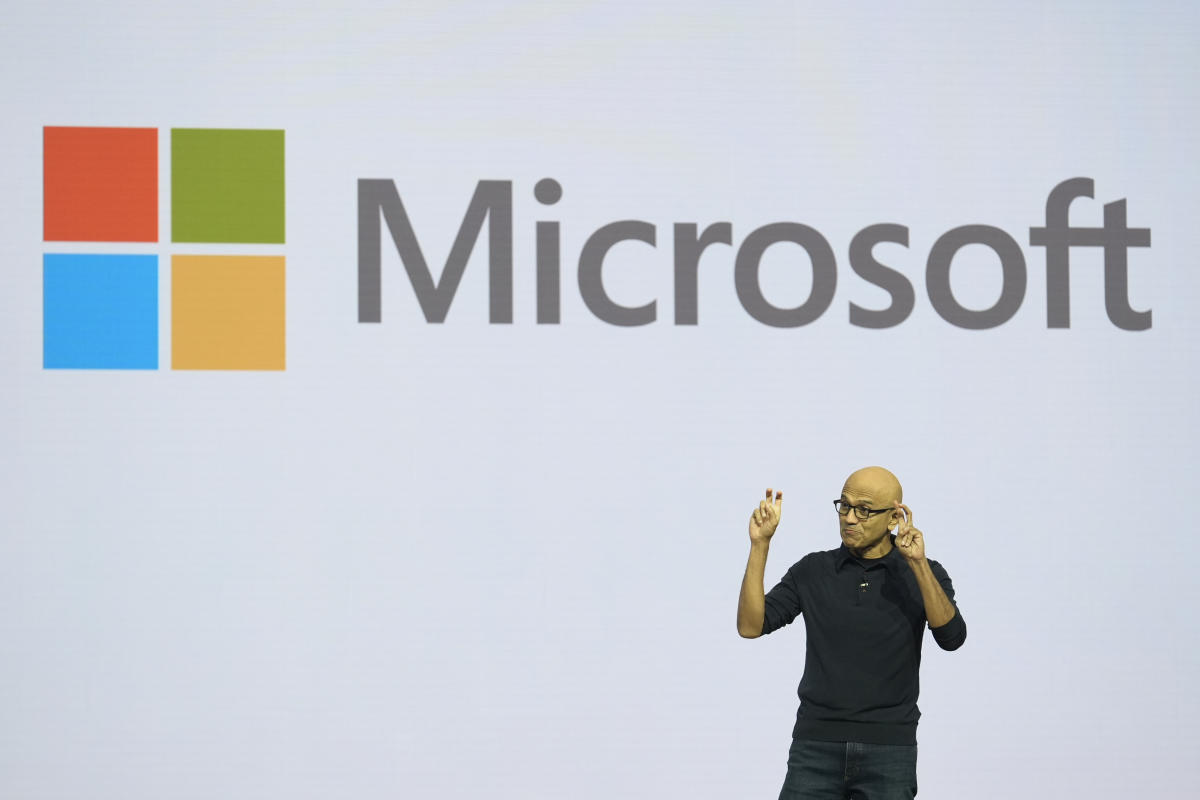If 2024 was the year of artificial intelligence chatbots becoming more useful, 2025 will be the year AI agents begin to take over. You can think of agents as super-powered AI bots that can take actions on your behalf, such as pulling data from incoming emails and importing it into different apps.
You’ve probably heard rumblings of agents already. Companies ranging from Nvidia (NVDA) and Google (GOOG, GOOGL) to Microsoft (MSFT) and Salesforce (CRM) are increasingly talking up agentic AI, a fancy way of referring to AI agents, claiming that it will change the way both enterprises and consumers think of AI technologies.
The goal is to cut down on often bothersome, time-consuming tasks like filing expense reports — the bane of my professional existence. Not only will we see more AI agents, we’ll see more major tech companies developing them.
Companies using them say they’re seeing changes based on their own internal metrics. According to Charles Lamanna, corporate vice president of business and industry Copilot at Microsoft, the Windows maker has already seen improvements in both responsiveness to IT issues and sales outcomes.
According to Lamanna, Microsoft employee IT self-help success increased by 36%, while revenue per seller has increased by 9.4%. The company has also experienced improved HR case resolution times.
As with any new technology, using AI agents will take some getting used to. But if they live up to the lofty expectations tech companies are laying out, they could win over plenty of users as an impressive new use case for generative AI.
“If … you immediately get very rapid and very accurate and very meaningful and helpful responses, then that can start to change people’s habits,” TECHnalysis Research president and chief analyst Bob O’Donnell told Yahoo Finance. “But changing people’s habits takes a while.”
The AI chatbot/AI copilot/AI agent discussion can be a bit confusing. After all, generative AI chatbots still feel like a new technology, and now we’re already being shuffled on to the next big thing. But those three capabilities are all part of the same overall system.
Ray Smith, Microsoft’s vice president of AI agents, says you can think of an AI copilot as your main interface for interacting with your chatbot or assistant. Kind of like a home screen for your different AI needs.
When you ask your chatbot or assistant to complete various tasks for you, it will reach out to the AI agents with the appropriate capabilities.
If that sounds complex, here’s an easy example: Say you want to book a flight. You could tell your chatbot to see what flights are available for you, and it will use different AI agents to check your flight preferences, your calendar and availability, and potentially even your financial apps to make sure you’re getting a flight in your budget range and then come back with a handful of suggested flights.
Earlier this month, Google debuted its experimental prototype, Project Mariner, which is capable of navigating the web and performing tasks via Google’s Chrome browser. In a video demo, Google shows an example of a user who needs to look up the contact information for a number of companies listed in a Google Sheets document. The user tells Mariner to memorize the list of companies, go to their websites, and find their contact emails.
The agent then actively navigates to each website, grabs the email information, and provides it for each company. Google significantly sped up the process in the demo video, explaining that Mariner is still in its early stages and that it takes time for it to complete requests. But the company says accuracy and speed will improve quickly, though it doesn’t have a set release date.
Apple’s (AAPL) Apple Intelligence will eventually offer AI agent-style functionality as well. In upcoming updates, the company says you’ll be able to do things like ask Siri when you should pick up your husband or wife from the airport. The assistant will then check your email to see when the flight is expected to land, check traffic via Apple Maps, and provide you with a suggested time to hit the road.
According to Futurum Group CEO Daniel Newman, agents will also be able to do things like help workers find potential business opportunities then help them set up and book meetings with prospective clients.
Don’t expect high-powered, multistep AI agents to go mainstream as soon as the clock strikes midnight on New Year’s Day. We’ll start to see a few next year, but it’ll likely take a bit of work to iron out all of the kinks. Instead, expect companies to lean into more basic enterprise use cases.
“There’s going to be also what I’ll call more boring agents that do productive things, things that automate IT processes, things that automate other tedious tasks,” O’Donnell said. “Those, I think, are going to become really important next year.”
Email Daniel Howley at dhowley@yahoofinance.com. Follow him on Twitter at @DanielHowley.
Click here for the latest technology news that will impact the stock market
Read the latest financial and business news from Yahoo Finance
